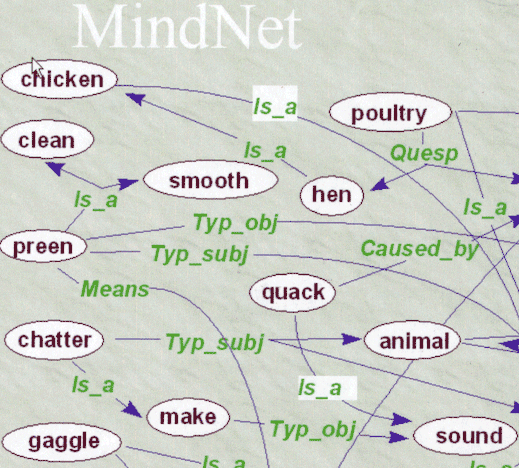 |
|
|
Volume 16,
Issue 4
|
|
|
||
| 16.4 | ||
| Theme: Knowledge Representation and Management |
|
|
|
Where is AI Today? |
|
While glancing through the Fall 2002 Comdex
Program (November 18-22), I could not help noticing how unexciting and
predictable the show topics were. With the sliding economy and companies
financially strapped, it is not surprising to see some focus on corporate
business fundamentals such as IT Management, Web Services, Storage, Security,
eMobility, and technical arenas such as Java, .Net, Windows, and so on.
However, with the possible exception of Business Intelligence, there is
little emphasis on intelligent technologies. Unfortunately, this is a
common occurrence during tight economies - corporations focus more on
survival and less on gaining market share or using technology to radically
improve processes. At the very time that companies should be leveraging
technology to improve their bottom line they ignore the opportunity. Smart
companies realize this and use intelligent technologies during the downturns
to improve their tools, processes, and knowledge - enabling them to gain
market share as the economy recovers - an important corporate advantage.
Successful companies do not advertise this fact - they do not want their
competition using this against them during the next downturn.
Business Rules, one intelligent technology that is very successful, is really just a vertical application of expert systems for knowledge management. Embraced as a crucial approach to strategic planning by major corporations and vendors such as IBM, American Express, Charles Schwabb, as well as government organizations, Business Rules have become mainstream. The primary premise of many current business rule systems is that the user of the critical business knowledge, the domain experts, maintains the knowledge. In traditional systems, the programmers embed the knowledge in the programs so only programmers can make changes. These rule based concepts of knowledge management are right out of expert systems 101. There are numerous opportunities for intelligent technologies to improve a corporation's bottom line during these economic down-turns. Expert system technology is a powerful tool, when applied properly. It can capture the fundamental expertise of those leaving a company or changing assignments due to limited corporate resources. For example, capturing an experienced HR person's knowledge of the corporate HR rules and guidelines frees that person up for other assignments. It can also provide guidance to new HR candidates, when the economy does turn around. The captured knowledge in turn can man the first level of support at customer support or interface centers. Other possible uses of this technology is supplying benefit information to employees, product information to prospective clients, or product support - many questions can be answered at this first level of support, whether using web or voice as the interface protocol. In this issue, we examine an expert system used in intelligent instruction. This issue also has a PC AI exclusive. Don Barker, a long-time writer and columnist for PC AI, has spent the past two years researching the Microsoft Research Division (MRD), with Microsoft's support and encouragement, in preparation for a number of articles and possible book on the history and accomplishments of MRD. This opportunity is afforded very few writers and we are excited to have one of the first articles resulting from Don's research. Microsoft has been collecting some of the best AI researchers and developers in a variety of AI related fields and many are now employed in the MRD. In addition, the timing could not be better as Microsoft is about to deploy this machine translation system, the accumulation of two decades of research, later this year.
|
|
|
||||
|
|
|
|
|
|